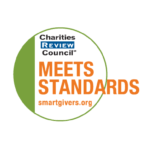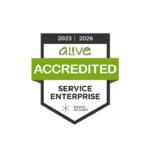Hoarding behavior can threaten the safety of the person and their neighbors as well as put the individual’s housing at risk. Hoarding behavior can be triggered by traumatic brain injury, dementia, and medical issues that cause functional limitations in activities of daily living and household upkeep. Trauma and loss can escalate hoarding behavior.

Hoarding disorder situations are complex and often involve public health, social services, and public safety departments. Individuals who hoard may also live with other mental illnesses – over 50% of people who hoard have depression, 30% have anxiety issues, and many have ADHD or OCD.
The following links and resources present a starting point to better understanding hoarding, to help support safety, and to link individuals, their family and friends with resources to develop a plan in conjunction with the person who hoards.
The basics
Hoarding: an overview
Minnesota Hoarding Task Force
The Minnesota Hoarding Task Force is a volunteer group made up of professionals who work in various fields, as well as individuals who have a personal interest in hoarding. The task force has done an excellent job of providing information about what hoarding disorder is and bringing resources together to help the community address hoarding,
“It is estimated that 5% of the general population of the United States is hoarding on some level. With a population in Minnesota of 5.52 million (2016), that means that as many as 276,000 people in Minnesota could be hoarding. Hoarding is often hidden from family, friends, and neighbors. The curtains may all be closed so that neighbors cannot see in, and because the hoarding individual is embarrassed. No one may be allowed to enter the home. Family members may or may not know about the situation, especially if they have not visited their loved one in several years.” Visit the Minnesota Hoarding Task Force website.
Beyond Hoarding
This video is a great place to start to get an understanding of hoarding disorder. “Beyond Hoarding presents a fresh look at hoarding through the stories of people caught in the destructive grip of this compulsion. Their experiences run the gamut from tragic death to courageous recovery. Top mental health experts share the latest insights into this psychiatric disorder which surprisingly affects millions.” The video is available for rent or purchase inexpensively on iTunes, Amazon, through all major digital streaming, and cable platforms or for purchase at Best Buy, Target or Amazon. It is free to watch for Amazon Prime members.
Mayo Clinic on hoarding disorder
Mayo Clinic provides an informative and concise description of hoarding disorder, its symptoms, risk factors, possible complications, and connection to other mental health issues..
Presentation: The Impact of Hoarding Disorder on Individuals, Families and Communities [PDF]
Janet Yeats, The Hoarding Project (now defunct)
Presented to the National Adult Protective Services Association Annual Conference, October 3, 2013. Excellent overview of the history of, aspects of, approaches to addressing hoarding disorder.
Stanford Medicine Rodriguez Lab on Hoarding Disorder
“Two behaviors characterize hoarding: acquiring too many possessions and difficulty discarding or getting rid of them when they are no longer useful or needed. When these behaviors lead to enough clutter and disorganization to disrupt or threaten a person’s health or safety, or they lead to significant distress, then hoarding becomes a ‘disorder.’ Simply collecting or owning lots of things does not qualify as hoarding. A major feature of hoarding is a large amount of disorganized clutter that creates chaos in the home.”
What’s causing the rise of hoarding disorder?
January 16, 2019, JSTOR Daily
Now that the DSM lists severe hoarding as a disorder apart from OCD, psychologists are asking what explains its prevalence.
Tools
Clutter–Hoarding Scale®
Institute for Challenging Disorganization
The Clutter–Hoarding Scale® is an assessment measurement tool, developed by the Institute for Challenging Disorganization (ICD) to give professional organizers and related professionals definitive parameters related to health and safety.
Hoarding Toolbox
Minnesota Hoarding Task Force
The task force’s mission is to support any person, family, friend or agency in Minnesota affected by hoarding. The task force has three primary roles:
- Educate the public and families about what hoarding is and is not.
- Respond to requests for help with hoarding situations. The Minnesota Hoarding Task Force does not offer services. Instead, uses their expertise and connections to share information and options to be considered.
- Develop presentations and informational talks to be used at training sessions.
The task force has compiled an excellent toolbox.
How to Talk to Someone with Hoarding: Do’s and Don’ts [PDF, 45.13 KB]
Tip sheet from the Massachusetts Housing Finance Agency.
List of Hoarding Disorder Resources in Minnesota
Minnesota Hoarding Task Force’s comprehensive list of resources.
Therapists
Minnesota hoarding therapists
List of therapists who work with clients on hoarding issues from Psychology Today.
Recommended books
Buried in Treasures: Help For Compulsive Acquiring, Saving, And Hoarding (Treatments That Work) 2nd Edition.
By David Tolin (Author), Randy O. Frost
Self-help/support groups
The Clutter Movement
A membership organization that provides support and resources for individuals, family members and professionals dealing with clutter or hoarding behavior. As a member of The Clutter Movement, you will be guided by Marnie Matthews, MSW, LICSW, a trained and experienced mental health professional that specializes in all areas of clutter, hoarding behavior, hoarding disorder, and crisis case management. Under Marnie’s guidance, members will have access to a variety of supports and resources.
Clean-up help
List of decluttering services via MinnesotaHelp.info.
Disclaimer:
Trellis offers these resources as information only. The content on these websites is not controlled by Trellis and we are not responsible for the content. The inclusion of such links on our website does not imply endorsement of the sites or their content.



